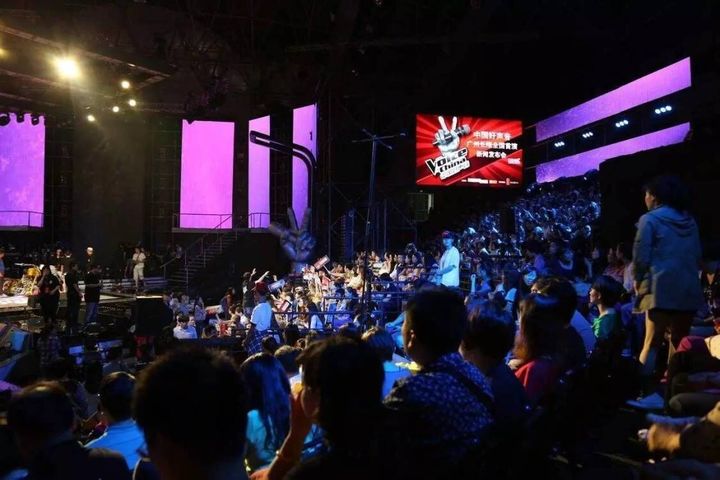 Dutch Talpa Media Terminates Partnership With ZTTF, Putting 'The Voice of China' Reality TV Singing Competition in Jeopardy
Dutch Talpa Media Terminates Partnership With ZTTF, Putting 'The Voice of China' Reality TV Singing Competition in Jeopardy(Yicai Global) Nov. 13 -- Chinese media production company Zhejiang Talent Television & Film Co. [SHE:300426] (ZTTF) has received a letter from Dutch TV program producer Talpa Media B.V., demanding the termination of the authorization agreement regarding "The Voice of China," popular reality TV singing competition, and requesting the Chinese company to pay USD41.25 million in licensing fees, ZTTF announced today.
Talpa issued a notice of default to ZTTF on Oct. 24, 2017, asking the latter to provide proof of payment of USD3.75 million in second tranche within 10 working days after the issuance of the notice and a written repayment plan for USD15 million in third tranche, ZTTF said today. As Talpa did not receive a reply from ZTTF within 10 working days, the Dutch company has notified ZTTF in writing that it will terminate the authorization agreement, demanding the Zhejiang company continue to pay the remaining USD41.25 million in licensing fees.
Talpa Media has been previously embroiled in a legal dispute with another Chinese company over the authorization of popular TV show "The Voice of China." Shanghai Canxing Culture & Broadcast Co. reached an agreement with Talpa in as early as 2012, and was licensed to use "The Voice of" format and produce "The Voice of China." Shanghai Canxing claims it has the exclusive right to renew the agreement until 2018.
However, ZTTF said in January last year that it has inked a USD60 million letter of intent with Talpa, acquiring the necessary production and broadcast rights to 'The Voice of' format and relevant services.
The three companies have since then been embroiled in a series of lawsuits regarding the rights and interests of the popular reality entertainment program.
The current situation could pose certain risks to the company, ZTTF said in a statement today. The company may not be able to keep producing "The Voice of China." The licensing fees of USD18.75 million that the company said it has already paid to Talpa and relevant taxes may not be recovered, it warned, adding the company may be ordered to pay the remaining USD41.25 million in licensing fees.